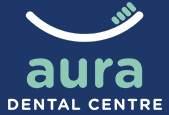SLEEP APNEA
Some individuals may experience issues with sleep hygiene, or the quality of sleep they achieve every night. Sleep apnea is a sleeping disorder and is a primary cause of reduced sleep quality. Sleep apnea is a potentially serious sleep disorder that is characterized by repeatedly instances of interrupted breathing. In other words, it causes someone to start and stop breathing multiple times while they sleep. Typically, loud snoring and feelings of excessive tiredness, even after getting a full night’s sleep, are signs that you may be experiencing sleep apnea.
WHAT ARE THE TYPES OF SLEEP APNEA?
There are three main categories or types of sleep apnea:
- Obstructive sleep apnea
- Central sleep apnea
- Complex sleep apnea syndrome
OBSTRUCTIVE SLEEP APNEA
This form of sleep apnea is the most common type. It occurs when the muscles in the throat relax too much and the tongue gravitates towards the back of the throat. When this happens, the airway becomes blocked. In doing so, you may experience choking or coughing that tends to wake you up from sleep as your body tries to fight for another breath.
CENTRAL SLEEP APNEA
This type of sleep apnea occurs when the brains communication with the muscles and nerves that control breathing are misfiring. In other words, the brain is failing to tell the body to breathe. When this happens, you may experience brief episodes where you are not breathing.
COMPLEX SLEEP APNEA SYNDROME
This complex form of sleep apnea is a combination of obstructive and central sleep apnea.
What are the consequences of sleep apnea?
Because sleep apnea blocks the upper airway and thus the ability of the body to absorb oxygen from the air, long-term exposure to the effects of sleep apnea can decrease oxygen levels in the blood which can lead to serious, negative cardiovascular complications.
Individuals with sleep apnea are also known to suffer from excessive daytime sleepiness, depression, and a loss of concentration.
How do I find out if I have sleep apnea? And, how do I treat it?
If you think you may be experiencing sleep apnea, there are ways to confirm it. Typically, your first step in recognizing the presence of sleep apnea is to seek out an appropriate consult for a diagnosis. A standard method of determining sleep apnea is to have a sleep study conducted by a medical professional who specializes in sleep pathology. For this, you can expect to stay overnight at a sleep laboratory where the doctors will monitor your sleep rhythms and behaviour.
If diagnosed with sleep apnea, there are several treatment options you can choose from. Initially, the doctor may recommend a nasal CPAP machine, which essentially forces pressurized oxygen through a mask that fits over your nose. This limits the obstruction that may be experienced during sleep.
Other treatment options include customized equipment that can be tailored to your comfort level and your sleep hygiene needs as well as surgical interventions or modifications to your lifestyle.
We recommend discussing any concerns you may have about your overall health with your physician as well as our dentists here at Aura Dental. We would be happy to give you a consult and refer you to a sleep specialist if necessary.
Call us today at (204) 560-4500 to book your appointment.

